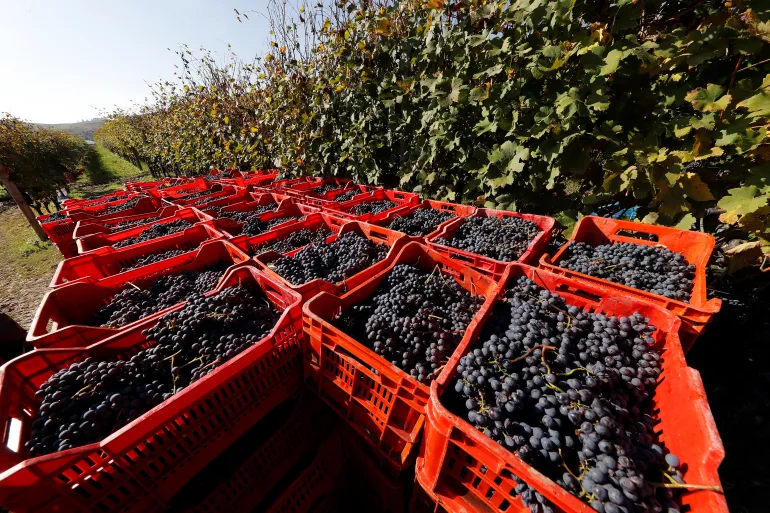Italy’s Langhe region, renowned for producing world-class wines like Barolo and Barbaresco, hides a troubling reality beneath its scenic vineyards. While the area attracts high-end wine tourism, its prestigious wineries heavily rely on undocumented migrant workers to fill labour shortages.
The government’s strict stance on immigration under Giorgia Meloni’s administration has not stopped Italian agriculture, including the wine industry, from depending on cheap labour from irregular migrants. Piertomaso Bergesio, a union leader in the region, highlights the paradox: “There is a huge need for workers, but immigration politics create irregularities.”
Historically, grape harvesting was a family affair, but rising production volumes have driven wineries to outsource labour. This demand has given rise to intermediaries, often referred to as labour brokers, who recruit migrants, many of whom lack legal documentation. Prosecutor Biagio Mazzeo explains that these intermediaries exploit the system: “Winemakers struggle to recruit, so they rely on intermediaries who hire undocumented workers.”
Migrants like Fallou, who arrived in Italy from Senegal a decade ago, often endure exploitative conditions. Fallou recalls being approached at a train station by a broker offering work for just €5 an hour, far below the standard wage. For months, he labored in vineyards without protective gear or adequate breaks, enduring long hours and verbal abuse.
Authorities have made some arrests, such as in the “Iron Rod” case where labour brokers were charged with exploiting workers. However, punishments remain lenient, and many brokers quickly return to business. Prosecutors struggle to hold wineries accountable, as owners often claim ignorance of the exploitative practices.
Efforts to address these issues have faced resistance. Matteo Ascheri, a former leader of the Barolo consortium, pushed for ethical labour practices but was voted out for his stance. He expressed frustration, stating, “The idea here is if you don’t talk about the problem, it doesn’t exist.”
The mistreatment of migrant workers tarnishes the reputation of Italy’s elite wine industry. Prosecutor Mazzeo calls it a “stain” on the region’s prestige, emphasizing that wineries have the means to ensure fair treatment but often fail to act.
For workers like Fallou, the stakes are high. Many send their meager earnings back home to support families, but they remain vulnerable to exploitation and deportation. Despite inspections uncovering illegal labour, systemic change remains elusive.
Italy’s wine industry faces a moral and ethical crossroads. Addressing these labour issues requires not only stricter enforcement but also a commitment from wineries to uphold fair labour standards, ensuring the region’s reputation aligns with the quality of its wines.

